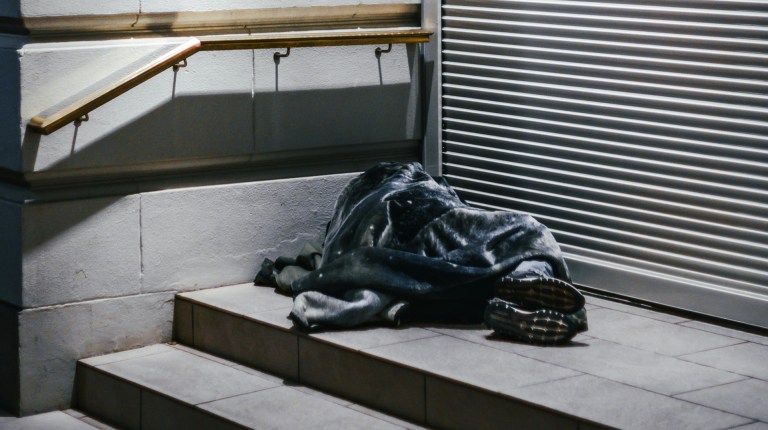“Is Awaab’s Law workable in the private rented sector? I think that’s an important question to ask. It’s certainly the right thing to do.
“I’d like to see the same energy going in to pushing the private rental sector into how we’re educating and resourcing landlords so they can actually deal with this as well. I think it’s actually a little bit unfair to have one without the other.”
The case of Awaab Ishak shocked the nation following the findings at his inquest in November 2022.
The coroner ruled that the two-year-old’s death in 2020 was down to a severe respiratory condition due to prolonged exposure to mould in his home environment.
Awaab’s death came after months of complaints from his family about the state of their home but landlord Rochdale Borough Housing (RBH) failed to take action.
The social housing landlord also faced accusations of racism for its handling of the case after the inquest uncovered personal questions about the family’s bathing habits.
Advertising helps fund Big Issue’s mission to end poverty
But the case brought seismic change beyond Rochdale.
Following campaigning by Awaab’s family, the Manchester Evening News and Weaver, Awaab’s Law was introduced as part of the Conservative government’s Social Housing Regulation Act.
Last month the Housing Ombudsman told the social housing sector to “overcome its complacency” towards dealing with hazards as Awaab’s Law is set to properly come into force.
Richard Blakeway, the housing ombudsman, said the regulator’s investigation highlighted a number of cases where landlords failed to deal with pest infestations, carbon monoxide leaks and more.
“Right now landlords should be assuring themselves they can deliver robust action on hazards and doing so will make them better prepared for Awaab’s Law,” said Blakeway.
Weaver’s own takeaway from the case was a lesson in power.
Advertising helps fund Big Issue’s mission to end poverty
“The family was so dignified. They were an example of incredible human beings. When they entered that court, such a strong narrative existed about who they were and what were the problems in that property, which they knew were untrue,” says Weaver, who works for law firm Garden Court North Chambers.
“The stereotypes, effectively, people were suggesting that that was the cause of the mould and, of course, given the consequences of their son dying, you can imagine how hurtful that was.
“Through it all they were incredibly dignified and I think the context for this is that they weren’t from this country – they were refugees from Sudan. Again, there was this narrative that developed in some parts of the community that they were here scrounging and should just be happy to be here and lucky to have a property. They’re two people that actively want to contribute to society and they are working very hard right now to do that.
“The key takeout was how powerful they were as a family and the second thing was this is just what powerlessness looks like. I don’t think I’d previously seen in life what absolute, true powerlessness looks like. I saw that in that case.”
Beyond the defining case, Weaver is what Priti Patel would call an “activist lawyer”, as she notably did in 2020.
He tells the Big Issue that he is looking to combine campaigning with his legal work, particularly helping people living in high-rise buildings to get fixed windows restricted in their property.
Advertising helps fund Big Issue’s mission to end poverty
Outside of the courtroom, Weaver has also penned two books explaining the law to the laymen.
The Law in 60 Seconds: A Pocket Guide to your Rights followed a successful online video series of the same name. Your Right to Protest followed last August, designed to stick in your back pocket if you’re on your way to take a stand. Handily enough, the book hit the shelves just as disorder spread across England in the shape of far-right riots and a wave of convictions has followed ever since.
“It (the book) felt very timely, not just that month itself but actually just the past few years where we’ve seen the government really try and claw back a lot of the rights to protest,” says Weaver.
“But I think something important to notice is the fact that when you do curtail protest, as has been done, you actually allow room for extreme forms of protest to arise that actually, had you not sought to curtail the more peaceful forms, might not have happened.”
Education is the answer to curtailing disorder seen in the riots as well as a whole host of other occasions where people fall foul of the law, Weaver believes.
He insists more legal education should even be on the school curriculum.
Advertising helps fund Big Issue’s mission to end poverty
He adds: “I honestly think future generations, if this ever were to be the case, would look at us and think, ‘How on earth was the law not taught on the curriculum?’. It affects literally every aspect of your life and, maybe it’s deliberate, but people will never feel empowered if they don’t know the very foundation of the law and the power that it gives.
“We’re seeing so much division in society right now. I think public legal education in some ways would be a byproduct of a more harmonious society because we actually know how power works.
“I think we’ve seen how dangerous misinformation can be in recent months and I think another way of looking at education would be transparency. So when you educate the public on how the legal system, how the justice system works, that means when you’re watching these things on TV you can properly understand it and that’s true transparency.”
Do you have a story to tell or opinions to share about this? Get in touch and tell us more. You can make a lasting change on a vendor’s life. Buy a magazine from your local vendor in the street every week. If you can’t reach them, buy a Vendor Support Kit.










